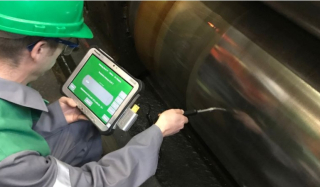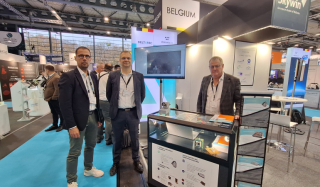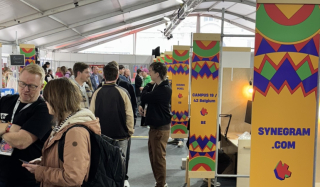
Today's video game market is worth just over €580 million in Belgium. In Wallonia, the sector is booming, with studios in the regions of Mons (Fishing Cactus - Nanotale and Epistory, Fire Falcon, Balio Studio - Garfield Lasagna Party, etc.), Charleroi (Appeal - Outcast 2, Maracas Studio, Badass Mongoose, etc.), Namur (Arteam, Little Big Monkey, Vigo Creative, Clever Trickster, etc.) and Liège (Abrakam - Faeria and Roguebook, N-Zone, Wild Bishop, Pandaroo Interactive, Funtomata, etc.).
Schools and an active network
Wallonia relies on the WALGA association, created in 2015 by its coordinator Jean Gréban, and accompanied by a team of seven people, to ensure all these stakeholders interact and discuss the sector: "The market potential is over 180.3 billion worldwide. This makes it possible to create hundreds of local jobs. In Wallonia, there are currently over 700 students in schools offering training in video game development."
As a reminder, this association is supported and mandated by the Region to represent and structure Wallonia's video game ecosystem. WALGA members include development studios (PC, consoles, mobile, virtual reality, etc.), start-ups, service providers, schools and training centres, university game labs and public bodies involved in video games. "We work closely with Wallimage (for public funding) and AWEX (for exports). The Region has no shortage of talent: we have three higher education institutions specialised in video game development (HEAJ in Namur, HEPL in Liège and HELHa in Mons), and two training centres specialised in video game development (Technocité in Mons and Technifutur in Liège). A Master's degree in video game development (HEAJ/HEH/Condorcet in Charleroi) has been created, in addition to two university Game Labs (UCLouvain and ULiège) and an AI department (Numediart/UMons). We represent all aspects of video games: training, creation, E-Sport activities, serious gaming, gamification, university game studies, etc."
Keeping talent within Belgium
This increasingly dense network is also enabling the country to put an end to its tricky paradox. "For the past 20 years, the paradox has been that we've been training quality young people here, and then they've left the country... Because there's a shortage of labour worldwide, but a lack of jobs here due to insufficient public support. We had no trouble exporting our talents to France, Canada, etc. It was an aberration, especially as young people in Belgium and Wallonia were consuming games created abroad," explains Jean Gréban.
The aftermath of COVID-19
After the pandemic, the sector finally started receiving support from the public authorities: "We had our first operating subsidy in September 2019," Jean Gréban explains further. "After the pandemic, programmes such as Get Up Wallonia and the Recovery plan freed up resources for the sector. Thanks to Tax Shelter, we are helping studios to grow: it's been a battle of almost 10 years to extend the financial support mechanism from the audiovisual sector to also cover the video game sector. This allows up to 25% subsidies, capped at €1 million, to be granted to studios, enabling them to create not only more ambitious projects, but also more jobs. It should not be forgotten that 90% of spending on video games is on salaries." Wallonia now boasts some forty studios, compared with around twenty before state aid was granted over the last two years. "These new studios were able to get off the ground thanks to initial public funding. Finally, we can support young people who want to develop their own video game right after they leave school." The Master's degree, based in Tamines, also develops project management skills, fostering the emergence of future studio executives or studio project managers. "We make sure that our courses meet market needs. For example, we've paid close attention to recent developments in AI, which has been integrated into the school curriculum to ensure we stay at the cutting edge of the latest developments. We don't want our students to be out of their depth when they graduate."
A wide range of professions
We mustn't forget that there are some fifteen different professions involved in the creation of video games: both technical and artistic, but also in sales, communications, etc. "The issue of gender has not been forgotten: we currently have very few girls in the sector. We mustn't hesitate to make them aware of this sector in primary and secondary schools." Internships in Belgium and abroad are important for the development of the sector and for exchanging knowledge and skills. "Last year, three French schools came to Belgium. We also organised the first international Belgian-Japanese Game Jam with over 180 students (122 Belgian and 66 Japanese). 18 projects completed online over a weekend are available on itch.io, and were streamed on Twitch, plus the broadcasting of the award ceremony at the Manga Museum in Kyoto in the presence of Princess Astrid, the mayor of Kyoto and the entire official Belgian delegation."
Concrete projects and funding
There is another major player supporting the sector: Wallimage. "Our mission, through our investments, is to add structure to the audiovisual and video game industries. Through our Corporate Department, we grant loans and make equity investments in certain companies, including video game studios," explains Sophie Augurelle, Gaming Line Manager at Wallimage. "With Wallimage Gaming, we support projects thanks to a subsidy awarded by the Region as part of Wallonia's Recovery plan (4 million). In two years, we have organised four calls for projects in the pre-production or production phase. This has allowed us to invest just over 3.5 million in the industry. We've supported 27 different projects developed by 25 Walloon companies. These are mainly entertainment projects developed by independent Walloon studios. There are also a number of co-productions, mainly with France."
Private funding for video games is still very complicated in Wallonia. "It takes several years to develop a video game, with no guarantee of a return on investment. So, it's a risky investment. We invest in video game projects in the form of conditionally repayable advances. In practical terms, this means that the fund recovers its investment from the revenues generated by sales of the game." Among the financial players, St'Art Invest, a public fund (Brussels + Wallonia) for the Cultural and Creative Industries, has invested in the capital of several video game studios and granted loans. Local investors supplement Wallimage's financing: Noshaq (Liège), Sambrinvest (Charleroi), IMBC (Mons), and Wallonie Entreprendre. The Centre du Cinéma et de l'Audiovisuel (WBF) offers subsidies for prototyping (7 winners in 2022 and 9 in 2023).
Is there a trade fair dedicated exclusively to video games in Wallonia coming soon?
Game Square is the first trade show in Wallonia to be 100% dedicated to video games (with a focus on games from independent studios, VR games, E-Sports and local communities). It will be held on the weekend of 4 and 5 May at WEX in Marche-En-Famenne. This is an opportunity for creators supported by various calls for projects from Wallonia and the Wallonia-Brussels Federation to present the prototype of their game to the general public. The winners of the second Wallimage 2023 call for projects were announced in early December:
- Mega Gum - Golemus, by BVGC studio (€100,000)
- Enoch: Children of Fate, from studio Evil Pug (€22,000)
- Game Over: Mission planète Blork, by Emotion Way Company (€60,000)
- Dice Rogue, by studio eSolu (€100,000)
- Hello World: a developer story, by Little Big Monkey Studio (€42,500)
- Hexfire: Echoes of Revenge, from studio Mystale Games (€40,000) → Blood Bar Tycoon, from Clever Trickster Studio (€150,000)
- L'Histoire d'un Roi, by studio Red Corner (€60,000)
Vincent Liévin in Revue W+B n°163.







